How Much Money Does A Welder Make
0
11 Highest Paying Welding Jobs in 2021
Last Updated on
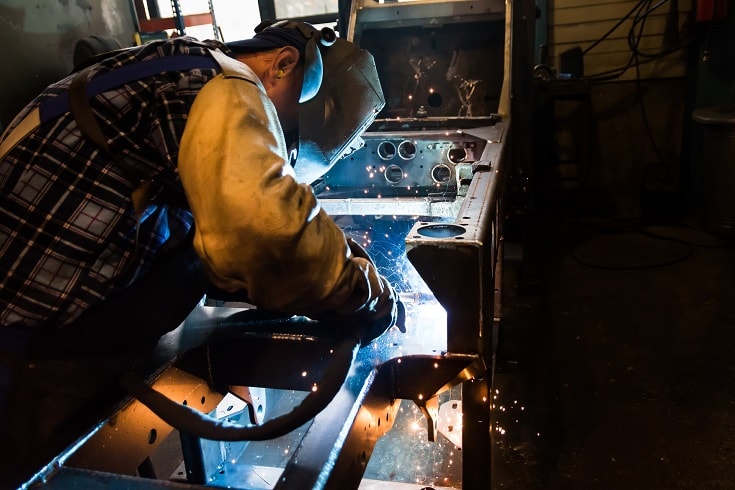
How to Earn More as a Welder
Although the average welder makes a salary that's respectable but not incredible, specialists in the field can make over $200,000 annually. So, what's the difference between your average welder earning $40,000 and a superstar welding stud making over $200k? Well, quite a lot actually. The following are some of the major differences that help account for such discrepancies between salaries. The more of these included in the job description, the higher pay you can expect from that particular branch of the industry.
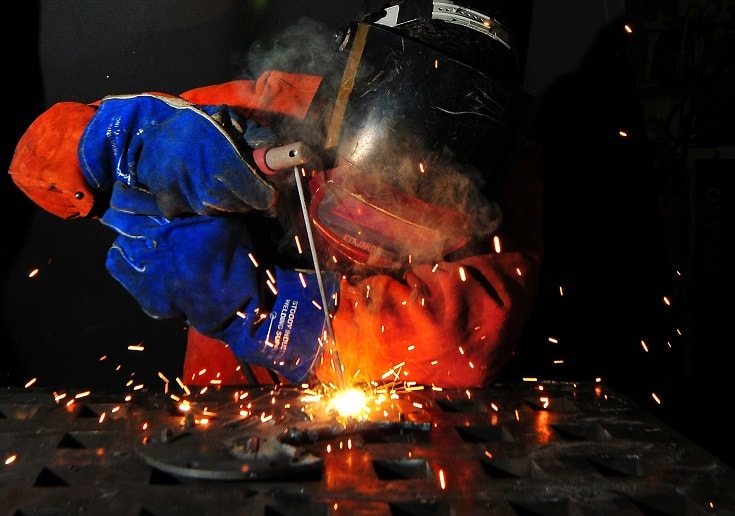
Image Credit By: gabrielroma, pixabay
Qualifications and Certifications
Most welders possess some sort of certification to verify their education in the field. But the welders who earn the highest paychecks often have the most certifications. Not just numbers though, they generally have taken the time to learn and earn the most difficult certifications that require a lot of time, energy, and skill to get. These require the attendance of specialty schools and can cost quite a bit of money along the way. Since these schools aren't located everywhere, you'll likely have to relocate, at least temporarily, if you want to get the sort of specialized welding education that will earn you the big bucks.
But schooling and education are only part of the process. You'll also have to perform certain tests to earn the certifications that will qualify you for the best-paying welding jobs available. These tests can be very difficult and require extensive knowledge of many processes since mistakes in the real world can be catastrophic.
The extra risk means you need extra skills, which is what the best employers are willing to pay for. But you won't land the highest-paid gigs with a single certification. No, the best jobs in the welding field will require a myriad of certifications, often from different regulating bodies.
For instance, to be an underwater welder doesn't just require the wet welding certification from the American Welding Society. You will need that, but it's just a single part of the equation. You'll also need to be a certified commercial diver before you can even do the schooling necessary to learn the skills needed to pass the AWS wet welding examination.
To land a job in underwater welding, you'll need internationally recognized certifications in diving, plus OSHA certifications, and even CPR and underwater first aid certifications to name a few. As you can see, it's a complicated process that requires a lot of time investment just to get in the door.
Of course, that schooling can be very expensive. Many of these programs cost tens of thousands of dollars and will require months of full-time study to complete. Moreover, once you've earned the certifications you need, you'll have to continue your education to keep them up to date. With ever-changing regulations and techniques that you need to keep up on, your education is never really done.
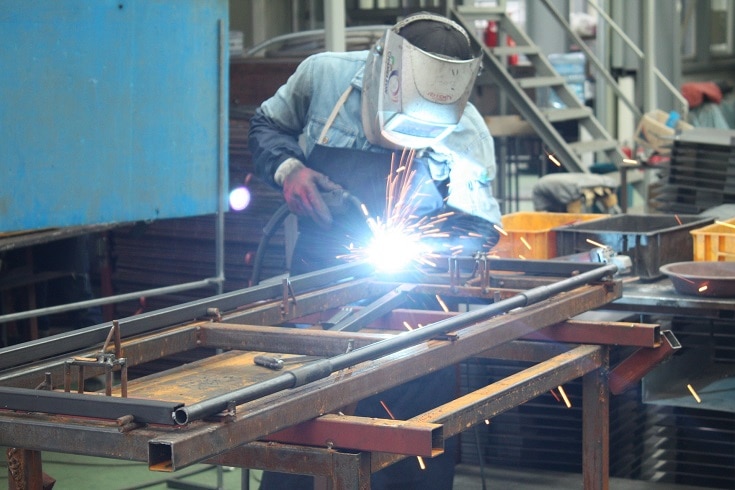
Image Credit: samjok5, Pixabay
Experience
Even if you have all the right certifications and land a career with one of the best-paying companies in the field of your choice, you still aren't going to start with your dream salary. In fact, you won't even be close to the top of the pay scale yet because one of the most important aspects of earning a high salary in welding is experience.
Your first few years are going to see paychecks at the bottom of the pay range in any given welding field. After 3-5 years of work experience in the welding specialization of your choice, you can expect to see your salary starting to grow to the numbers you were hoping to see. After 5-9 years you'll finally start breaching those high numbers, provided you've kept up to date on your certifications and you've done a great job for your employer from day one. Not everyone is cut out to make the top-end salaries, so you'll have to keep improving every day if you want to ensure that you do.
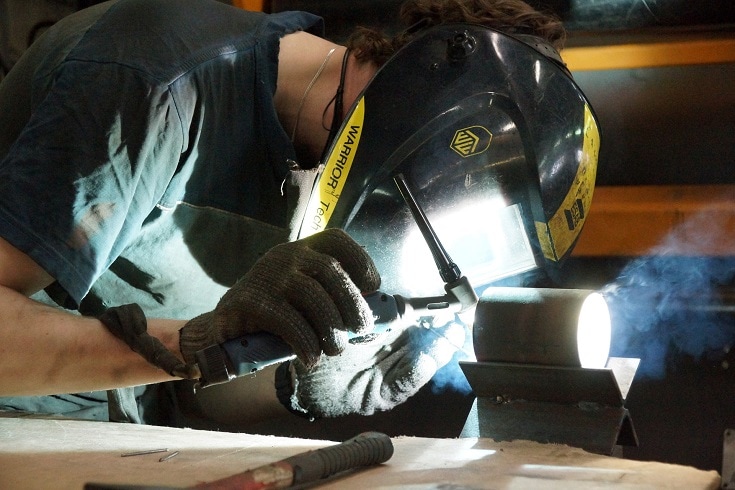
Image Credit By: stafichukanatoly, pixabay
Travel
It doesn't matter how qualified or experienced you are if you aren't where the work is. Often, the best paying work for welders requires a lot of traveling and time away from home. This sacrifice is a major part of why certain welding careers pay so well. You may be spending weeks or months on end on a rig at sea, or you may be traveling to a new place every other week to keep up with the demands of your chosen specialization.
In pipe welding, for example, you may be following the needed repairs, being called to a new location when something breaks down and they need your assistance. In rig welding, you may be living on an oil rig for many months, always there to take care of problems if and when they arise. It's a major sacrifice to spend so much time away from your family and it's not for everyone. But hey, that's why they earn the big bucks.
Health Risks/Danger
It's not surprising that the higher risk of injury and death you're exposed to during your work, the better compensated you'll be. Some types of welding take place in dangerous environments and have high degrees of workplace fatalities. No one wants to die for their job, so employers are willing to pay much higher wages for the workers who take on the extra risk.
To illustrate, in underwater welding, you have to deal with such risks as electric shock, explosions, decompression sickness, dangerous marine wildlife, and even drowning. Naturally, this means that underwater welders have the opportunity to earn a much higher salary than the average welder since most welders aren't likely to drown in their manufacturing jobs.
Work Schedules
While most employees work a pretty standard schedule that looks similar to a normal 9-5 for five or six days a week, many of the highest paying welding jobs have long and difficult hours that help propel them to the tops of the earning charts. Offshore welding jobs are often worked for weeks or months at a time, putting in 12-hour days, seven days a week. If you can't handle the stress of such hours, then such careers may not be in the cards for you.
But there are upsides to these schedules as well. Many welders who work these types of hours also take off several months a year and still make incredible salaries that they can finally enjoy when they get those months of downtime. Others work for a few weeks of long and constant days before taking a few weeks off. It all comes down to the companies you're working for and the type of schedule you can handle working.
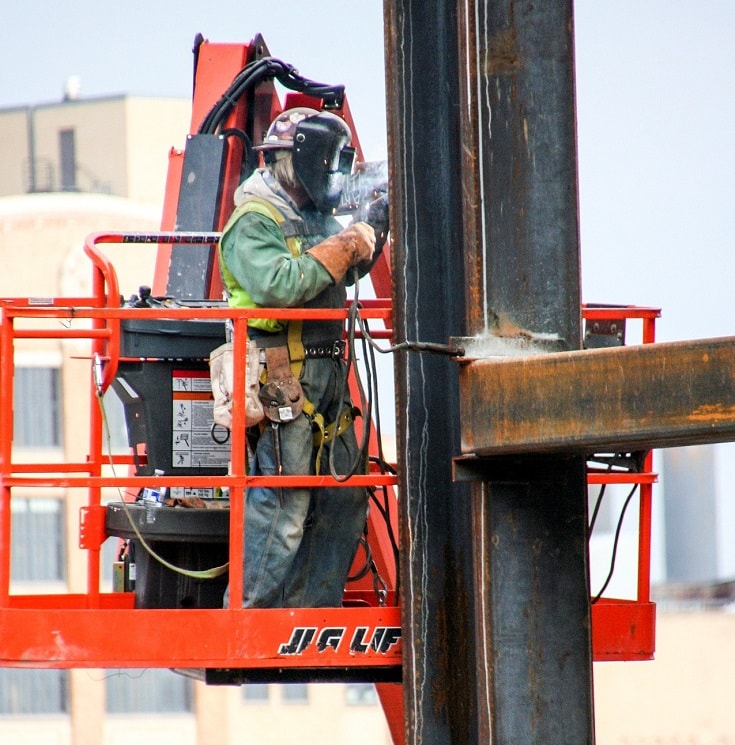
Image Credit By: kaldeth, pixabay
The 11 Highest Paying Welding Jobs
1. Rig Welder
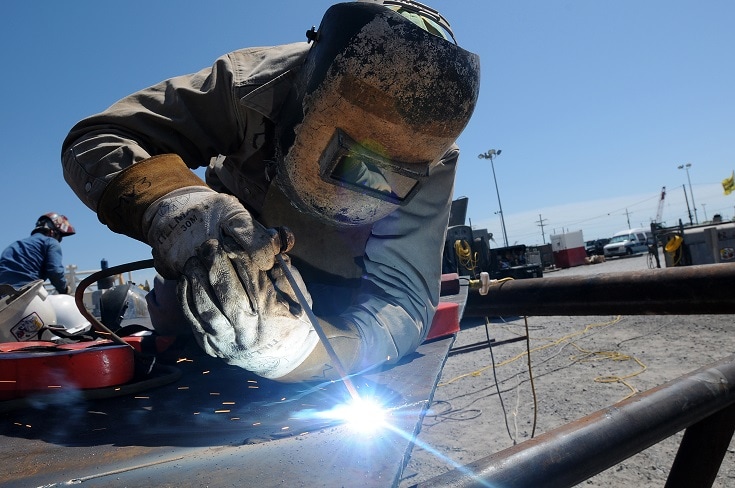
Image Credit By: PO3 Patrick Kelley, commons wikimedia
Annual Salary: $52,000 – $207,000
Rig welders are about the highest-paid welders in the world. They work long and difficult hours and they have the most advanced educations and qualifications. If they make a mistake, it's going to be cataclysmic, so companies only hire the best of the best for these positions. You'll need years of experience and multiple certifications before companies will even consider you for the job. Rig welders are often expected to perform underwater welding, hyperbaric welding, and welding of all different types on offshore oil rigs at sea.
Some rig welders may be flown to and from their worksite on helicopters daily. More likely though, you'll be living on the rig you service for extended periods, working 12-hour days, every day of the week. This may last for weeks or months at a time, but it's a major part of why rig welders earn such incredible pay.
2. Underwater Welder
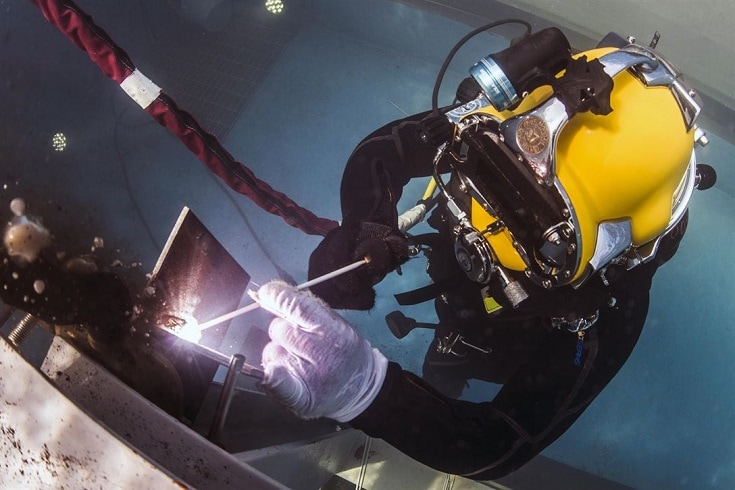
Image Credit By: Petty Officer 1st Class Charles White, defense.gov
Annual Salary: $38,000 – $147,000
Underwater welders face a lot of danger in their job. In fact, this is one of the most dangerous jobs you could hold, and they have a much higher rate of workplace fatality than most other careers. Naturally, that's a major part of why they get paid so well. Underwater welders may work offshore on many different types of projects. They could be building or repairing oil rigs and other oil-related structures, salvaging shipwrecks, working on subsea construction, or many other duties that only they can perform.
To be an underwater welder, you'll need a wet welding D3.6M certification from the American Welding Society. But before you can even start schooling to get this certification, you'll need to be a certified commercial diver, which requires 5-7 months of full-time schooling. You'll learn the basics of underwater welding during this initial schooling, but you won't be certified to earn the biggest paychecks until you get your official AWS certification. Expect to spend $20,000+ just to get the education and certifications necessary for this career. But once you're earning six figures yearly, the investment will be worth it.
3. Nuclear Welder
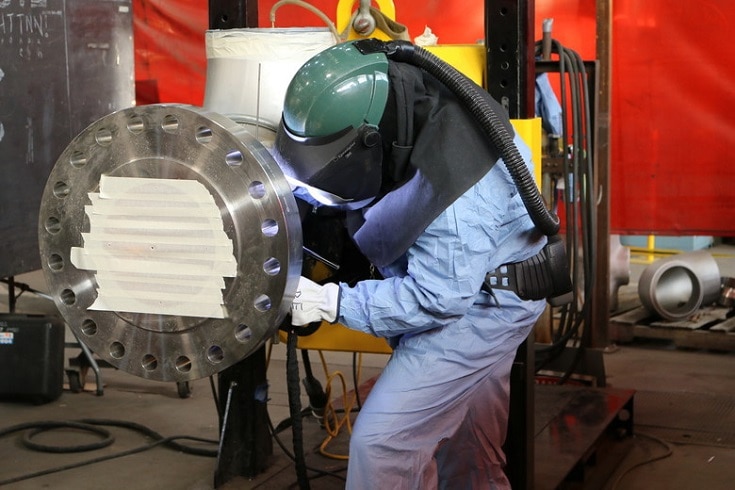
Image Credit By: Bradley Hicks, afmc.af.mil
Annual Salary: $22,000 – $143,500
Nuclear welders may have to perform a large variety of tasks that require many different certifications. You'll likely need an underwater welder certification as well as commercial diving certification. But the most unique requisite for this career is that you'll have to be cleared by the FBI! You have to have a security clearance just to work in or around the nuclear materials that a nuclear welder will have to work on. Moreover, you'll likely need to pass psychological tests and regular drug and alcohol tests as well. It's a rigorous lifestyle that's not for everyone. As a nuclear welder, you may work on nuclear-powered vessels, building or repairing reactor vessels, or working in shipyards.
4. Industrial Pipeline Welder
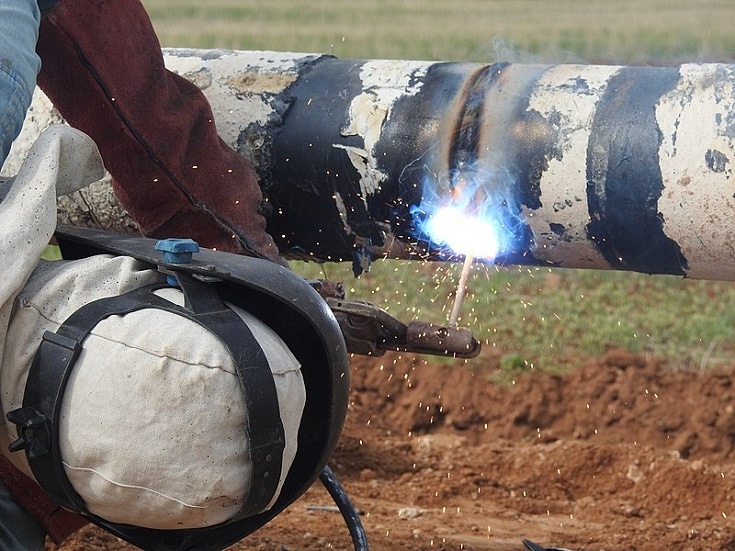
Image Credit By: Hamid Soufi, commons wikimedia
Annual Salary: $23,500 – $133,500
Gas and oil are transported through extensive interconnected pipelines that span thousands of miles. A leak can mean disaster for the company that controls the pipeline as well as the environment around it. As an industrial pipeline welder, you'll be responsible for building and fixing these pipelines. This means a lot of travel to various areas, often even out of the country. On the bright side, you'll see a lot of places and perform your work in ever-changing environments. But some of them may not be the ideal workplaces. You could find yourself working in the heat of Saudi Arabian deserts, or the snowy tundra of Alaska. Granted, you'll be well-compensated for your travel and your skills, and you won't have the same risk to life and limb that other high-payed welders may experience, such as underwater welders.
5. Military Support Welders
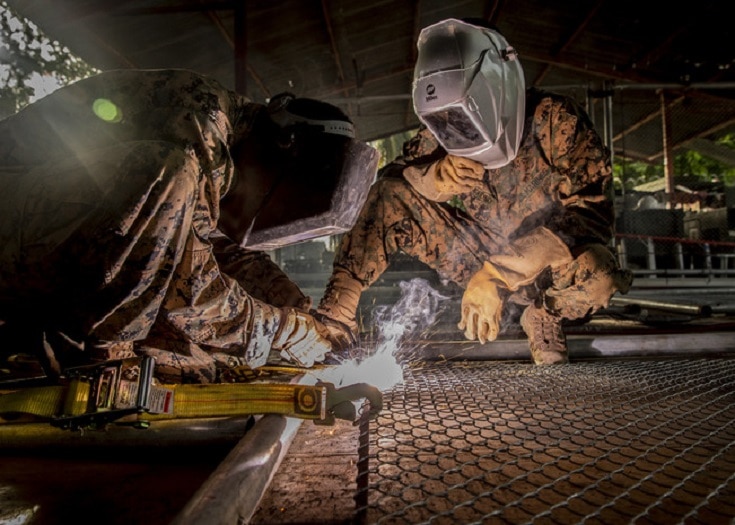
Image Credit: Sgt. Justin Smith, marforsouth.marines.mil
Annual Salary: $37,000 – $160,000
It shouldn't be very surprising that working in war zones can pay very well. Military installations across the world require building and upkeep, and it takes skilled workers to do it. When you're risking your health and well-being in a war-torn area, the compensation will rise to meet the risk. Not everyone is cut out for this type of environment, and you need to pass rigorous training before you'll be sent off on such jobs. You'll also have to be a part of the armed forces, another choice that's not for everyone. But you'll get great benefits and even better paychecks.
6. Welding Engineer
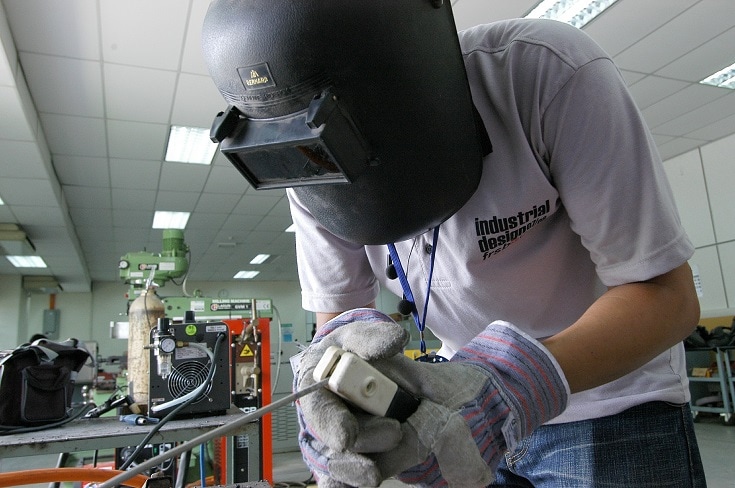
Image Credit By: felixioncool, pixabay
Annual Salary: $51,000 – $120,000
To be a welding engineer, you're going to need a love for learning since you'll always have to stay up to date on all the latest and greatest welding techniques. You'll need to incorporate these new advancements into the companies you work for, using your knowledge to enhance the processes currently taking place to make things more efficient and improve the overall level of workmanship of your entire company. You'll need a bachelor's degree and certification through the AWS just to get started.
7. Certified Welding Inspector
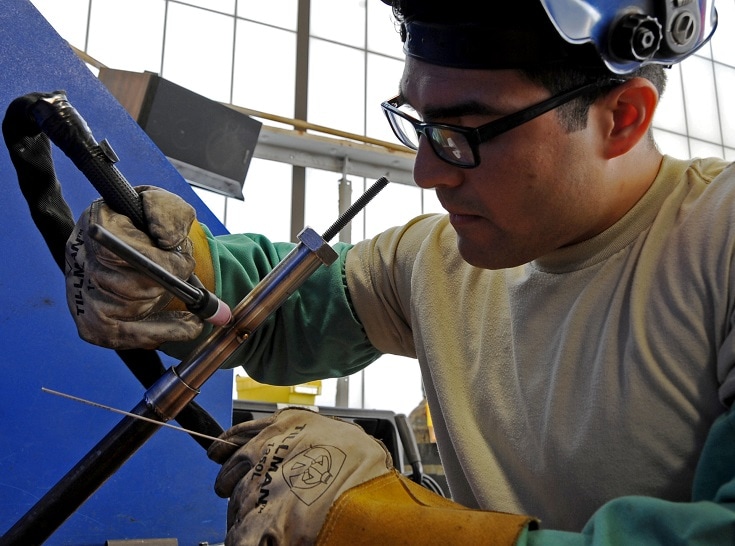
Image Credit By: Staff Sgt. Jason McCasland, afgsc.af.mil
Annual Salary: $42,000 – $104,000
As a certified welding inspector, you may not be doing a whole lot of actual welding. But you'll need to understand it better than any of the welders in your company since you'll be responsible for making sure that everything they do is up to standard. You'll need to monitor heat values, make sure all welders are following compliance and safety protocols, and ensure that all processes are performed up to an acceptable level of quality. This means you'll need to know and understand the specifications for every welding process being performed. Before you can even take the exam to get certified, you'll need three years of welding experience.
- Read more: How Much Do Welding Inspectors Make This Year?
8. Pipe Welder
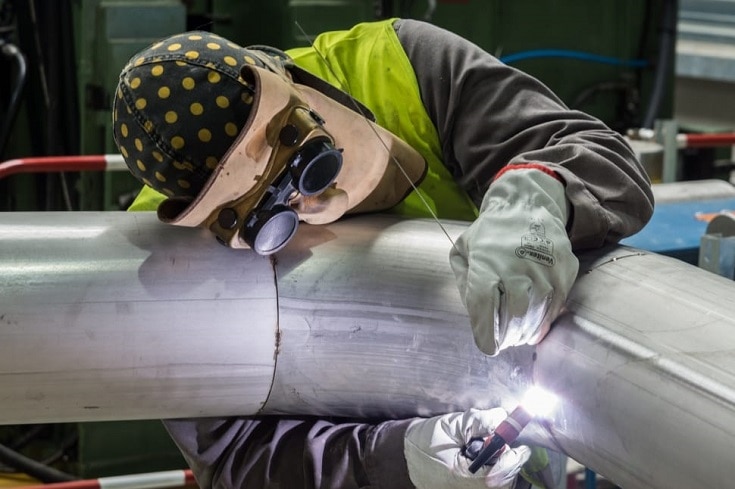
Image Credit By: Creative Commons Zero – CC0, peakpx
Annual Salary: $35,000 – $100,000
Pipe welders will work on pipes across many industries, not just oil and gas pipelines. You may perform work in automotive manufacturing, shipbuilding, or construction, among others. You'll need AWS certification, but you'll also likely receive on the job training from the companies you work for.
9. Combo Welder
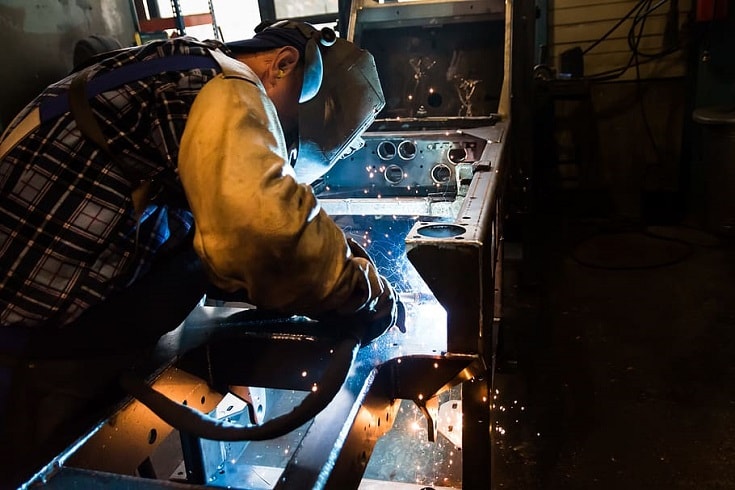
Image Credit By: Creative Commons Zero – CC0, pxfuel
Annual Salary: $32,000 – $82,000
Combo welders are less specialized than many of the other high paying welding jobs. You'll need to be proficient in many different types of welding, such as MIG, TIG, Stick, and ARC. Depending on the company you work for, you may be asked to do extensive travel. Your duties will also depend greatly on your employer since combo welders may be hired into a variety of different fields. You'll need several years of experience before getting hired as a combo welder because you'll be expected to be able to perform so many different functions.
10. Certified Welding Supervisor
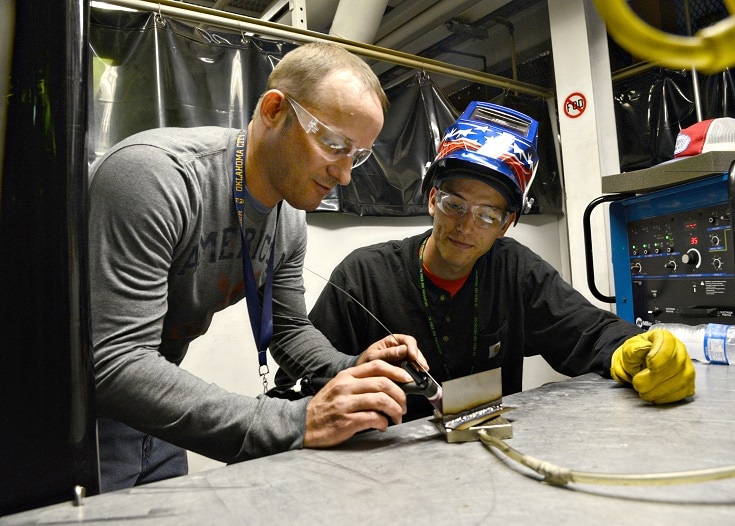
Image Credit By: Kelly White, tinker.af.mil
Annual Salary: $38,000 – $75,000
As a certified welding supervisor, everything comes down to you. You'll have to make sure that all the welders in your company are meeting quality standards, deadlines, and safety requirements. You'll be overseeing all of the welding, so it's up to you to ensure that everyone is doing what they need to be. Safety is one of your primary concerns, and you'll have to be vigilant in ensuring that everyone is strictly adhering to safety protocol. But if production schedules aren't met, that falls on you as well.
11. Aerospace Welder
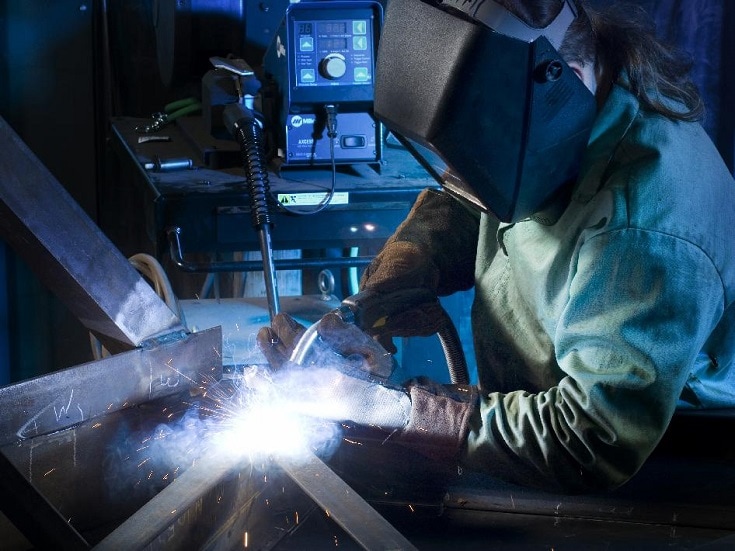
Image Credit By: NASA/Quentin Schwinn (RS Information Systems, Inc.), NASA
Annual Salary: $37,000 – $69,000
Though they make more than the average welder, aerospace welders don't earn as much as you might expect, considering the industry they work in. This is highly skilled work with very tight tolerances, but your risk of death or injury is low and you won't generally be asked to do a lot of traveling. If you want the comfort of a pretty regular career with above-average pay, then this is a specialization you may consider.
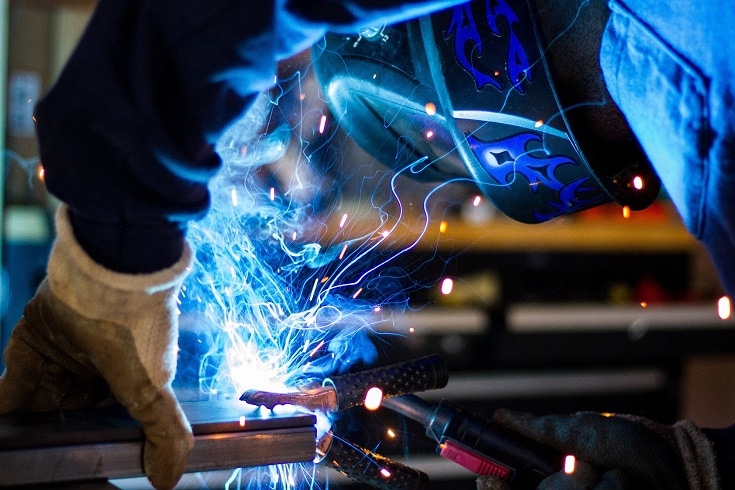
Image Credit By: Free-Photos, pixabay
Conclusion
So how much do welders make? There are many ways to make an incredible salary as a specialized welder. The more risk you're willing to take on, the better paychecks you can see. Likewise, the longer you spend away from home, the more your bank account will thank you. You'll also get paid more for higher skills, more education, and more certifications, but the best way to make the highest salary is to do all of the above.
If you can handle the long hours, time away from home, and extensive education necessary to be a rig welder, then you could take home over $200,000 annually once you have a few years of experience. With an AWS wet welding certification, you could make a great six-figure income as an underwater welder. And if you have a squeaky-clean background and a solid psychological profile, you could even become a nuclear welder and earn well over $100,000 each year for your endeavors.
Featured Image Credit By: jarmoluk, pixabay
- How to Earn More as a Welder
- Qualifications and Certifications
- Experience
- Travel
- Health Risks/Danger
- Work Schedules
- The 11 Highest Paying Welding Jobs
- 1. Rig Welder
- 2. Underwater Welder
- 3. Nuclear Welder
- 4. Industrial Pipeline Welder
- 5. Military Support Welders
- 6. Welding Engineer
- 7. Certified Welding Inspector
- 8. Pipe Welder
- 9. Combo Welder
- 10. Certified Welding Supervisor
- 11. Aerospace Welder
- Conclusion
Cameron Dekker
Cameron grew up in Allentown, Pennsylvania, a once-proud steel town on the Lehigh River, where he got a taste of TIG welding in his high school shop class. He holds certificates for Certified WeldingEducator (CWE) and Certified Resistance Welding Technician (CRWT) from the American Welding Institute. His interests include scuba diving, sculpture, and kayaking.
How Much Money Does A Welder Make
Source: https://waterwelders.com/highest-paying-welding-jobs/
Posted by: rodriguesaforeg.blogspot.com

0 Response to "How Much Money Does A Welder Make"
Post a Comment